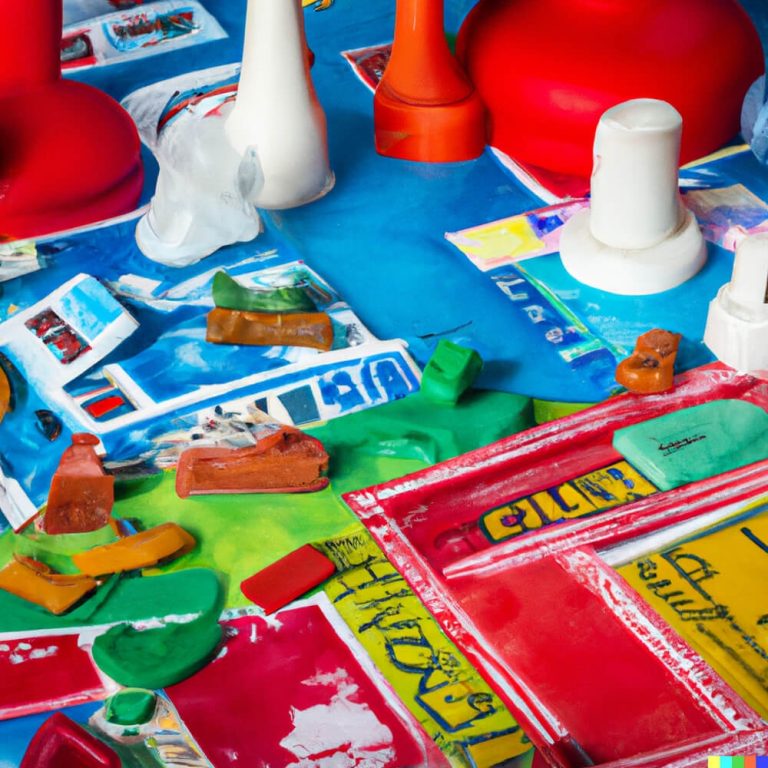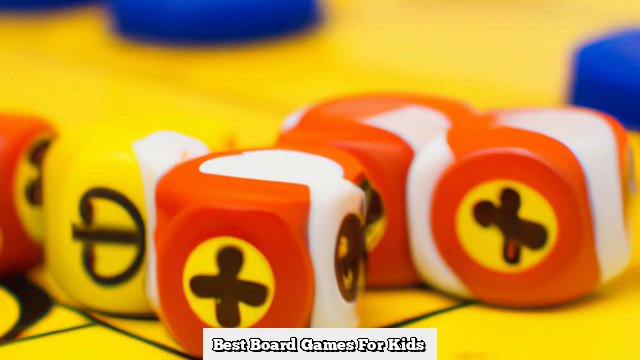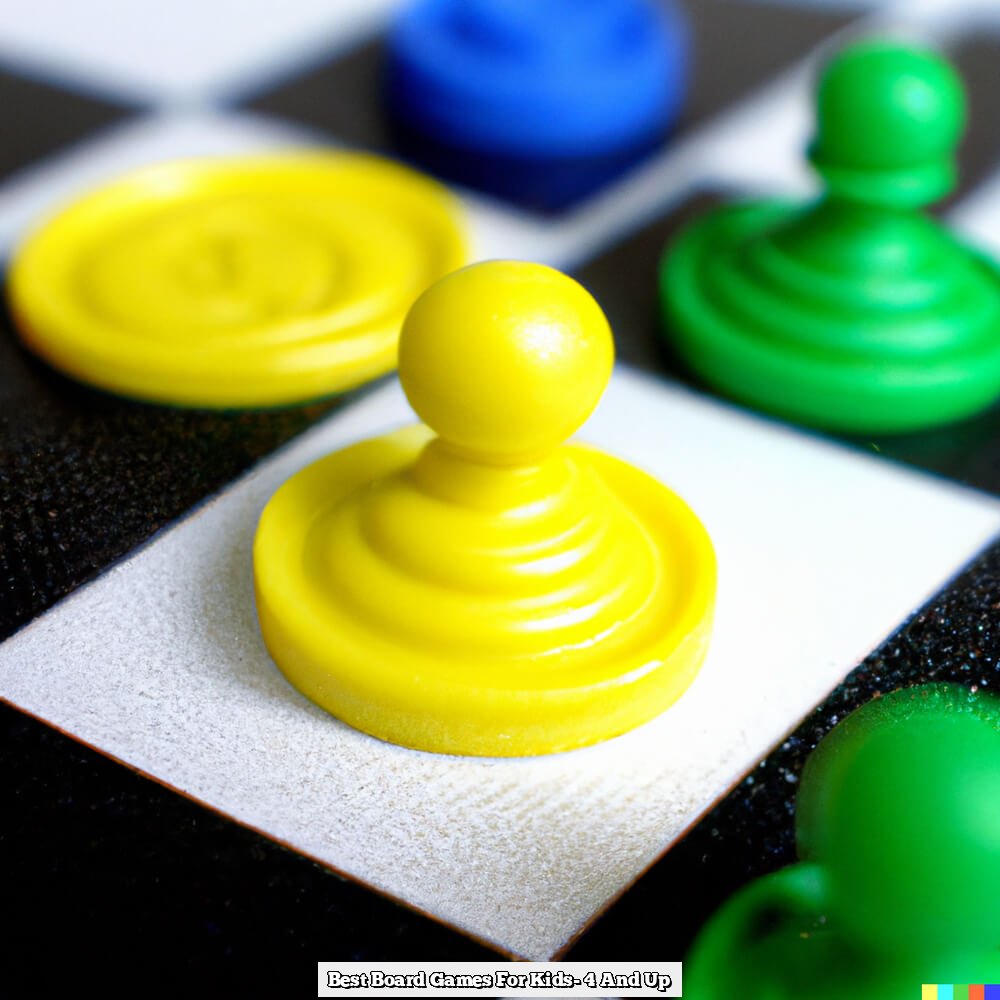Introduction
Playing board games is a fun activity that many families enjoy. For kids, it provides them with an opportunity to spend time with their parents, get away from screens and excercise their critical thinking skills. However, the tight competition that board games bring can also be daunting for children who are unaccustomed to losing. Understanding how the different age groups perceive and respond to losing is key in helping young players manage their emotions when playing board games.
Toddlers: Young children aged two to four often experience disappointment intensely when they lose a game since they don’t comprehend nor know how to express their feelings in an appropriate manner yet. Therefore, as parents, it is important to emphasize fairness and cooperation rather than competition so as not to overwhelm toddlers with the pressure of being pitted against adults or older siblings.
School-aged Children: When kids reach school-aged (5-11 years), they start striving for success and measuring themselves against objectives such as winning a game; hence, losses can be quite painful for them emotionally if they take it personally. On the other hand, simply allowing them time and space to understand why they lost while ensuring they know that mistakes happen will help foster resilience in them and allow them to accept defeat gracefully.
Teenagers: By adolescence (12-18 years), teenagers have developed an identity – one of which includes self worth – which means losing hurts even more now because it feels as if part of their identity is taken away when things do not go their way. As such, parents should emphasize sportsmanship instead of winning at all costs along with discussing strategies regarding successful risk assessment techniques so teens can view failure as a learning opportunity rather than feeling rejected or inadequate from the perspective of those around them.
Exploring the Reasons Why Kids Have Trouble Handling Defeat
Board games can be an exciting way for kids to engage in friendly competition, but when youngsters lose these games it can lead to frustration. There are a number of factors that contribute to kids struggling with losing board games. These include: age, difficulty level of the game, and individual psyche.
Age plays an important role in how a kid handles game losses. Pre-school children are often more likely to have difficulty processing frustration and disappointment, especially if they lack the language skills necessary to express their feelings effectively. Elementary school-aged kids have better developed communication skills than younger children, but this doesn’t necessarily mean they understand or accept defeat any easier – they may still feel emotionally overwhelmed due to their competitive nature and desire to win. On the other hand, middle school-aged kids tend to be more resilient when it comes to losing because of their maturity and experience playing board games—though this may not always be the case as some pre-teens and adolescents may act out aggressively or pout in response as well.
The complexity of some board games can also cause youngsters trouble dealing with losing which is why it’s important for parents or caregivers to choose age-appropriate ones that have understandable rules so children don’t become frustrated easily. If a child finds certain aspects too difficult or unfair then they won’t enjoy playing the game. In addition, those with unique psychological traits like perfectionism may find losses especially hard to process as they may feel overwhelmed by seeing imperfection and struggle to stay positive after being humiliated by defeat.
Therefore, when it comes to helping kids cope with losing board games, patience is key – taking time afterwards to talk about strategies or giving praise for effort can help relieve some of the pressure. Parents should also ensure that kids learn how to handle wins gracefully as well since humility is just as important as learning how deal with failure, showing good sportsmanship is paramount for healthy competition overall!
Giving Kids Perspective About Winning and Being Good Sports
When teaching children about board games, it’s important to emphasize that losing can be a part of the game. Kids may become frustrated when they don’t win but it is an important lesson to learn that sometimes we don’t win. Encourage them not to take the loss personally and explain that everyone has bad luck sometimes. It’ll help them learn sportsmanship and understanding of shifting situations. This could be done by letting them know that though they didn’t win this time, there are always other games and opportunities to succeed as well as teaching them how to gracefully congratulate their opponents on a well-played game. Remind them that there are more important aspects of the game, such as joining friends and family together for a fun bonding experience with no competitive intention. Expressing these values shortly before or during the game will help kids appreciate moments for even if they lose—it’s about how you play and not just about winning.
Instilling Positive Mental Attitudes About Winning and Losing
Losing board games can be difficult for children to handle. It’s important for parents to help kids develop positive mental attitudes about winning and losing as they learn how to better cope with their emotions when they experience a defeat. This can start by providing encouragement and understanding to kids when they lose, rather than criticism or disappointment. Furthermore, it’s essential to model good sportsmanship after games, emphasizing that winning isn’t the goal — having fun is what matters most instead. Parents should also make sure that younger children understand that not everyone can win all the time during a game and offer reminders that what’s really important is having fun with their friends or family members. When a child loses in a game with other kids, it’s also important for adults to provide supportive words of encouragement such as “That was a great effort!” or “You did your best!” Additionally, if the child is feeling competitively stressed out about not winning, try gently redirecting their attention toward learning something new during the game or turn it into an opportunity to practice mindfulness techniques such as taking slow deep breaths or counting backwards from ten. By doing this, you can foster your child’s resilience skills while making it easier for them to accept defeat in board games comfortingly.
Providing Tips for Helping Kids React Positively With Loss
When kids lose board games, it can be a difficult experience for them. It is important for parents and caregivers to teach kids how to respond in a positive way when faced with loss. Below are some tips for helping kids react positively when they lose board games:
1. Acknowledge the Loss: After giving your support and encouragement to your kids after their loss, it is also important to point out that everyone has to face loss at one point or another. Explain that losses showing resilience, strength and courage are just a part of life’s lessons and explain how they can use their experiences as an opportunity to grow.
2. Encourage Gratefulness: Remind your child of all the wonderful things they have whether those be tangible or intangible like good health, strong relationships or plenty of time to participate in activities they enjoy. Help them stay focused on the bigger picture so that they don’t get too caught up in disappointment over one particular game.
3. Stress Good Sportsmanship: While teaching children about losing gracefully may not seem interesting in the heat of the moment, emphasizing good sportsmanship and understanding how handling victory and defeat with honorable behavior reflects character will help build their confidence later in life.
4. Suggest Learning Opportunities: Let your child know that lessons can even come from losing if we allow ourselves the chance to look at mistakes made during play and reflect honestly on what could have been done differently next time around for better results. This type of self-reflection isn’t merely beneficial for learning game strategies, but great life skills as well
Developing Resilience and Confidence in Kids’ Board Game Skills
It’s a fact that all kids will sometimes lose board games, but it can be difficult to watch them struggle as they learn how to cope with the feeling of defeat. The key to helping them become resilient and confident in their board game skills is to provide an encouraging and supportive environment where failure is accepted, not punished.
Start by discussing the importance of persistence and good sportsmanship when playing these games, no matter what the outcome may be. Remind your child of strategies such as picking up a new game or trying something different if they continue to find themselves losing. Encourage healthy competition and support your child in how they are managing wins and losses.
Parents should also take the time to play alongside their children; this way, parents have a chance to demonstrate good sportsmanship while giving kids an opportunity to observe how adults manage wins or losses gracefully. You could even offer advice on ways they could try playing differently next time, such as taking risks or strategizing differently. This can also help reaffirm that losses do not define who they are but are simply part of life’s many lessons.
Using positive reinforcement can also be extremely helpful in reinforcing desirable behaviour during these games; praising specific elements or accomplishments like great strategizing or thoughtfulness in making decisions can encourage young players’ confidence in their own abilities over time. Finally, remind them that everyone experiences winning and losing differently—so resist the urge to impose a “right” response for success or failure when it comes to handling game outcomes.
Summary
When kids are learning how to play board games, it can be difficult for them to understand that they may not always win. It is important to teach children to handle losing gracefully and without tantrums, so they can establish a healthy relationship with board games as they get older.
One of the key components to teaching children how to handle losing board games is helping them understand why they lost the game. Talk to the child about what went wrong in the game, and explain what strategies would help them win in future games. It can also be helpful for the child to visualize themselves winning during future playing sessions, which will give them a psychological advantage when it comes time for another round of playing.
Next, it is important for parents and caregivers to promote good sportsmanship around board games in order to teach children that everyone has both wins and losses. Modeling this behavior will show your child that failure isn’t something that should be feared or shied away from; rather, it should be accepted as part of any challenge or competition.
Finally, make sure you emphasize the fun that comes from playing board games by focusing on the positive aspects of participating rather than the outcome. Whether someone wins or loses, sitting down together as a family offers an opportunity for quality bonding time which is far more valuable than anything else derived from playing board games.
Conclusion
It is important to teach kids how to both experience disappointment and also how to remain emotionally even-keeled when facing competitive scenarios. This can be done by arming them with the tools of problem-solving, situational awareness, and self-awareness. When we give children resources for coping healthily with feeling frustration, sadness, anger, or distress over a game setback, we also open up the opportunity for them to exercise resilience.
Parents can assist kids in developing these skills by engaging them in thoughtful conversations about their emotions and experiences, actively modeling healthy expression of those emotions themselves, and helping develop tactics on how they can address difficult emotions or tricky interpersonal situations when they crop up during play. Kids should also be encouraged to see that while efforts to win are appreciated, what really matters is how they handle different kinds of outcomes. Helping them build an understanding around why it is helpful to graciously accept victory and defeat can not only help kids remain emotionally balanced but could ultimately lead them to enjoy the ride of a game regardless of whether they win or lose.
It may take time for kids learn how to carry themselves with grace when gaming with others – playing like winners even after defeats – but it’s a standard you can help them strive for from home. With guidance from parents, carers, teachers and coaches alike on navigating competitive scenarios fairly yet resiliently, young people can more readily come out every game as a winner in their own right too.

I love playing all kinds of games – from classics like Monopoly to modern favourites like Ticket to Ride.
I created this blog as a way to share my love of board games with others, and provide information on the latest releases and news in the industry.





